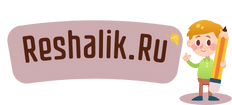B) Complete the sentences with must, can’t, may, might, could, and their past forms: 1. Sally appears to be unhappy and
1. Sally appears to be unhappy and anxious. She (have) a problem with something.
2. Bob (be) at school because I haven’t seen him today.
3. Mr. Treves hasn’t shown up for work yet. He has never been late for work. He (miss) the bus.
4. Timmy is a very well-behaved boy, so he (break) that window. Someone else (break) it.
5. I’m confident that I left my keys in the car. It (be) there at the moment.
6. The street is wet this morning. I’m not sure, but it (rain) last night.
7. A: I spoke to your science teacher at school yesterday.
B: You (talk) to her because she wasn’t at school yesterday.
8. A: The man was being taken to the hospital. He (have) an accident.
B: Yes, I’m sure he had an accident.
9. A: Will you come to my birthday party tomorrow?
B: I (come) to your party because I have to look after my little sister.
10. A: I’m planning to do a parachute jump next week.
B: You’re going to jump out of an airplane! But you’re 73 years old! You (be) serious. You (be) mad.
A: It really (be) wonderful looking down on everything. I’ve always wanted to try it.
B: But anything could happen. You (be) injured or even killed. I wouldn’t take the risk.
A: Well, your life (be) much more fun if you never take risks. You ought to try it, too. You never know. You (enjoy) it.
B: Enjoy it! You (be) joking.
11. She knew everything about our plans. She (listen) to our conversation.
12. He (eat) the roasted beef when we were out. He is a vegetarian.
13. Mrs. White bought a new fur coat! She (win) a lottery.
14. John said he would call, but he hasn’t. He (forget) all about it.
15. The children (study) in the library now because they have a test tomorrow.
16. The singer has a sore throat, so she (not sing) at the concert.
17. I (be) at home this evening, or I (be) out; I’m not sure.
18. He drank three glasses of water. He (be) very thirsty.
19. A: Where’s the cat?
B: It (go) out; the door is closed.
20. The police arrested him right away. They (find) enough evidence.
21. He had no money, so he (lend) you some.
22. We can’t wait any longer. Something (be done) immediately.
23. They all shouted in fear. They (be) very afraid.
24. A: Your dog bit me while I was standing in the hall.
B: It (not be) my dog. It was with me all day.
25. A: I called you at 9 o’clock this morning and got no answer.
B: I (be) in the garden. I planted some flowers this morning.
26. My grandmother always takes a rest at this time of the day, so she (take) a nap now.
27. Mrs. Green wasn’t good at ice-skating, but she insisted on it and broke her leg. She (give) up doing that.
28. A: I’m afraid Ted is watching TV again.
B: He (watch) TV because his room is completely silent and dark. He (sleep).
29. That carpet was made by hand. It (take) a long time to make it.
Пояснение: При использовании модальных глаголов can, could, may, might, must, can’t в настоящем и прошедшем временах, мы можем выражать вероятность, возможность, уверенность или отсутствие уверенности в том, что что-то произошло или произойдет.
1. Sally appears to be unhappy and anxious. She may/might have a problem with something. (Салли, кажется, несчастлива и встревожена. У нее возможно есть проблема с чем-то.)
2. Bob can’t/must be at school because I haven’t seen him today. (Боб не может быть в школе, потому что я его сегодня не видел.)
3. Mr. Treves hasn’t shown up for work yet. He could/may have missed the bus. (Мистер Тривес еще не явился на работу. Он, возможно, пропустил автобус.)
4. Timmy is a very well-behaved boy, so he can’t have broken that window. Someone else must have broken it. (Тимми – очень послушный мальчик, так что он не мог разбить то окно. Кто-то другой, должно быть, разбил его.)
5. I’m confident that I left my keys in the car. They must be there at the moment. (Я уверен, что оставил свои ключи в машине. Они должны быть там сейчас.)
6. The street is wet this morning. I’m not sure, but it may/might have rained last night. (Улица сегодня утром мокрая. Я не уверен, но, возможно, прошлой ночью шел дождь.)
7. A: I spoke to your science teacher
Совет: Чтобы лучше понять употребление модальных глаголов для выражения вероятности и уверенности, рекомендуется изучить дополнительные примеры и обратить внимание на контекст, чтобы определить, какой из модальных глаголов наиболее подходит в конкретной ситуации.
Задание для закрепления: Используйте подходящие модальные глаголы или их прошедшую форму, чтобы завершить предложения:
1. The cake smells delicious. It (taste) amazing too!
2. Tony is a great swimmer. He (swim) across the lake in just an hour.
3. I can’t find my phone. I (leave) it at home.
4. The movie was really boring. I (fall) asleep halfway through.
5. Sarah has been studying all day. She (know) the material well for the test tomorrow.
6. The dog is very friendly. It (bite) anyone.
7. A: Have you seen my keys? B: They (be) on the table.
